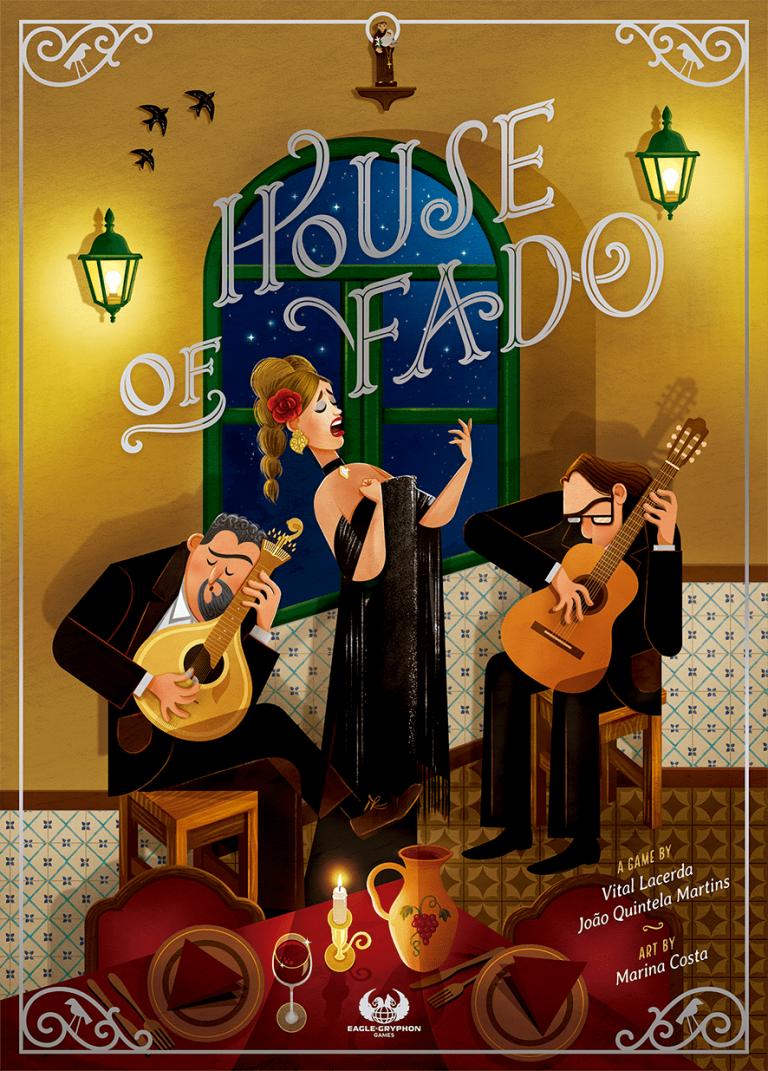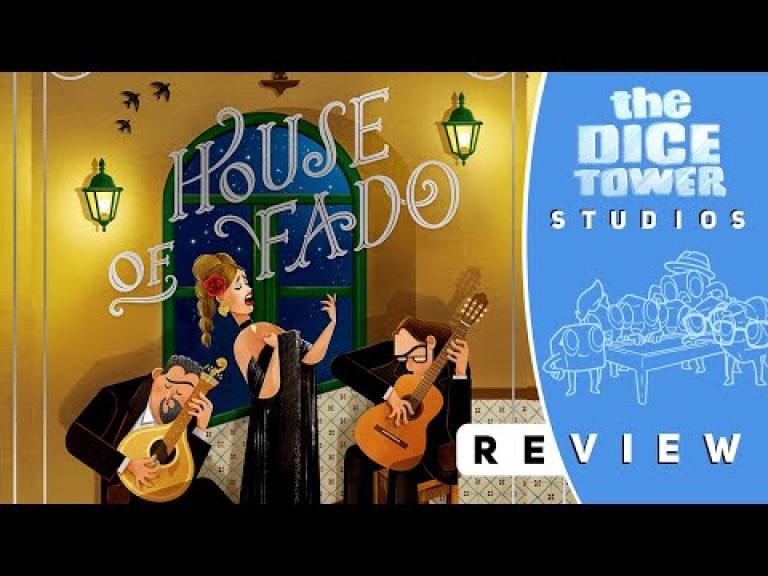House of Fado

House of Fado
In Portugal, some restaurants serve traditional Portuguese food along with performances of Fado - an iconic world-renowned traditional Portuguese music - delivering customers a profoundly expressive performance.
People spend their entire evenings in these restaurants, called Casa de Fado (“House of Fado”), dining and listening to the music. It speaks about "Saudade" (a Portuguese word meaning "longing, nostalgia, yearning, missing something or someone" that is unique from Portugal). Typically, there isn't any rotation of the tables. Once you enter the restaurant, you stay until it's closed. Fado is normally played by a trio of musicians in its traditional form.
On the left, a guitarist plays "Guitarra Portuguesa" (a 12-string Portuguese Guitar). In the middle is a singer, a fadista, and on their right a guitarist playing "Viola de Fado" (classical guitar). The Portuguese guitar has a unique sound, and the chords are played in different bars from those of the classical guitar.
In the game, players will have to manage the restaurant, attract customers as well as contract and promote fadistas and musicians, thus gaining prestige for their Fado house. Managers will move their staff members to different places to perform some actions.
Having the same bump action as in The Gallerist, this becomes a straightforward fast-paced, 1-hour game, but still very challenging as usual in Lacerda style.
After 'Bot Factory', this is the 2nd game co-designed by Vital Lacerda and João Quintela Martins.
If you want to learn more about Fado, here is how Wikipedia defines Fado:
"Fado (Portuguese pronunciation: [ˈfaðu]; "destiny, fate") is a music genre that can be traced to the 1820s in Lisbon, Portugal, but probably has much earlier origins. Fado historian and scholar Rui Vieira Nery states that "the only reliable information on the history of fado was orally transmitted and goes back to the 1820s and 1830s at best. But even that information was frequently modified within the generational transmission process that made it reach us today."
Although the origins are difficult to trace, today fado is commonly regarded as simply a form of song which can be about anything, but must follow a certain traditional structure. In popular belief, fado is a form of music characterized by mournful tunes and lyrics, often about the sea or the life of the poor, and infused with a sentiment of resignation, fate and melancholy. This is loosely captured by the Portuguese word saudade, or longing, symbolizing a feeling of loss (a permanent, irreparable loss and its consequent lifelong damage).
Famous singers of fado include Maria Teresa de Noronha, Alfredo Marceneiro, D. Vicente da Câmara, Frei Hermano da Câmara, Amália Rodrigues, Dulce Pontes, Carlos do Carmo, Mariza, Mafalda Arnauth, António Zambujo, Ana Moura, Camané, Helder Moutinho, Carminho, Mísia, Cristina Branco, Gisela João and Katia Guerreiro.
On 27 November 2011, fado was added to the UNESCO Intangible Cultural Heritage Lists."
—description from the designer
People spend their entire evenings in these restaurants, called Casa de Fado (“House of Fado”), dining and listening to the music. It speaks about "Saudade" (a Portuguese word meaning "longing, nostalgia, yearning, missing something or someone" that is unique from Portugal). Typically, there isn't any rotation of the tables. Once you enter the restaurant, you stay until it's closed. Fado is normally played by a trio of musicians in its traditional form.
On the left, a guitarist plays "Guitarra Portuguesa" (a 12-string Portuguese Guitar). In the middle is a singer, a fadista, and on their right a guitarist playing "Viola de Fado" (classical guitar). The Portuguese guitar has a unique sound, and the chords are played in different bars from those of the classical guitar.
In the game, players will have to manage the restaurant, attract customers as well as contract and promote fadistas and musicians, thus gaining prestige for their Fado house. Managers will move their staff members to different places to perform some actions.
Having the same bump action as in The Gallerist, this becomes a straightforward fast-paced, 1-hour game, but still very challenging as usual in Lacerda style.
After 'Bot Factory', this is the 2nd game co-designed by Vital Lacerda and João Quintela Martins.
If you want to learn more about Fado, here is how Wikipedia defines Fado:
"Fado (Portuguese pronunciation: [ˈfaðu]; "destiny, fate") is a music genre that can be traced to the 1820s in Lisbon, Portugal, but probably has much earlier origins. Fado historian and scholar Rui Vieira Nery states that "the only reliable information on the history of fado was orally transmitted and goes back to the 1820s and 1830s at best. But even that information was frequently modified within the generational transmission process that made it reach us today."
Although the origins are difficult to trace, today fado is commonly regarded as simply a form of song which can be about anything, but must follow a certain traditional structure. In popular belief, fado is a form of music characterized by mournful tunes and lyrics, often about the sea or the life of the poor, and infused with a sentiment of resignation, fate and melancholy. This is loosely captured by the Portuguese word saudade, or longing, symbolizing a feeling of loss (a permanent, irreparable loss and its consequent lifelong damage).
Famous singers of fado include Maria Teresa de Noronha, Alfredo Marceneiro, D. Vicente da Câmara, Frei Hermano da Câmara, Amália Rodrigues, Dulce Pontes, Carlos do Carmo, Mariza, Mafalda Arnauth, António Zambujo, Ana Moura, Camané, Helder Moutinho, Carminho, Mísia, Cristina Branco, Gisela João and Katia Guerreiro.
On 27 November 2011, fado was added to the UNESCO Intangible Cultural Heritage Lists."
—description from the designer
Player Count
1
-
4
Playing Time
30
-
60
Age
14
Year Released
2024
Newest Review
Remote video URL


